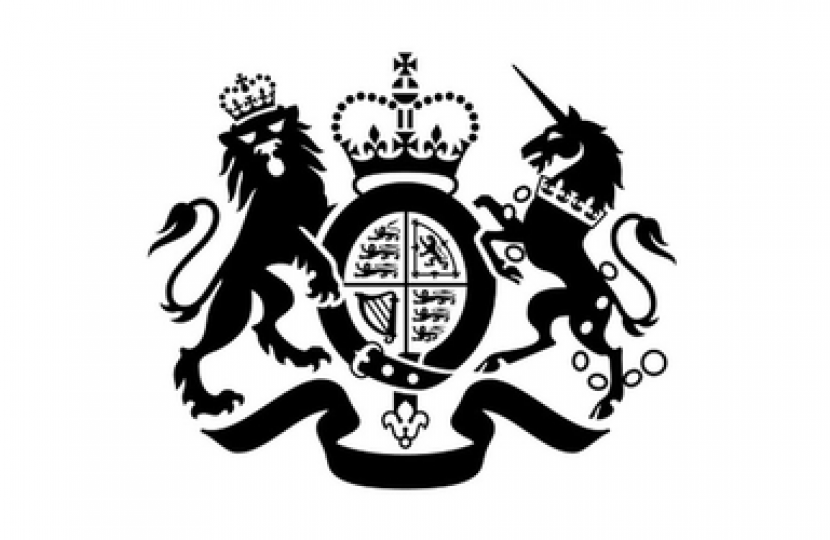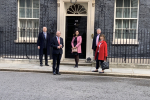
Dear Colleague,
The UK’s COVID-19 vaccination programme is a recognised success: 89% of people aged 16 and over have received one dose of a COVID-19 vaccine, whilst 80% have had their second dose. Public Health England estimate that over 143,600 hospitalisations and up to 116,200 deaths have been prevented by the vaccination programme in England to date. The phenomenal vaccine rollout is building a wall of defence that is allowing us to get back to normal life.
The advice provided by the independent Joint Committee on Vaccination and Immunisation (JCVI) to the Government during the COVID-19 pandemic has been invaluable in ensuring a safe, effective, and successful vaccination programme in the UK. We are writing to you to update you on the latest important developments in our COVID-19 vaccine deployment programme as we have made two major announcements this week.
Universal Vaccination of 12-15-year olds
Following advice provided by the JCVI over the summer, 12-15 year olds with conditions that put them at increased risk from COVID-19, or who live with individuals who are immunosuppressed, are eligible for vaccination against COVID-19.
On 3 September the JCVI recommended expansion of the ‘at-risk’ categories for this age group. At the same time, the JCVI also considered vaccination for all 12-15 year olds and concluded that the health benefits outweighed the risks. However, this was by such a small margin that they did not feel it justified a recommendation for vaccination on individual health grounds alone. They suggested that the Chief Medical Officers (CMOs) of the four nations be asked to look at the wider societal and educational factors and provide further advice to their respective Ministers. On 13 September, the CMOs published their response to the Ministers, available here: Universal vaccination of children and young people aged 12 to 15 years against COVID-19 - GOV.UK (www.gov.uk). The JCVI advice of 3 September can be found in full here: JCVI statement, September 2021: COVID-19 vaccination of children aged 12 to 15 years - GOV.UK (www.gov.uk)
After careful consideration the Government has accepted the view of the UK CMOs that the additional likely benefits of reducing educational disruption, and the consequent reduction in public health harm from educational disruption, on balance, provide sufficient extra advantage in addition to the marginal advantage identified by the JCVI for an offer of vaccination to be made to all 12-15 year olds not already covered by existing JCVI advice.
Therefore, this age group in England will be offered a vaccination in the coming weeks. I want to place particular emphasis on the word ‘offer.’ Parents and their children should be supported to make a considered decision on vaccination and there should be no stigmatisation or pressure for people based on the decisions that they make. ‘At risk’ 12- 15-year olds will continue to be offered two doses of a COVID-19 vaccine, while those without underlying health conditions will be offered one dose. Once more data on second doses has accrued internationally, the JCVI will provide their view on whether, and what, second doses to offer. The preferred vaccine for this age group remains the Pfizer vaccine.
I would like to pay tribute to the work of both the JCVI and the work of the CMOs of the UK in reaching this advice. As both the JCVI and UK CMOs make clear: advice on this age group, where risks from the virus are much lower at an individual level, is challenging. I thank both the Committee and the group led by the CMOs in reviewing the emerging science and data and making recommendations that are in the clinical best interest of these children and young people.
Autumn Booster Campaign
On 14 September, the JCVI published advice on a COVID-19 booster programme to maintain protection against severe COVID-19 disease, hospitalisation and deaths over winter 2021/22. The Government has accepted this advice, and all four nations of the UK intend to follow the JCVI’s advice and align their deployment. The JCVI advice is available here: JCVI issues updated advice on COVID-19 booster vaccination - GOV.UK (www.gov.uk)
The JCVI advises that for the 2021 COVID-19 booster vaccine programme individuals who received vaccination in Phase 1 of the COVID-19 vaccination programme (priority groups 1-9) should be offered a third dose COVID-19 booster vaccine. This includes:
- Those living in residential care homes for older adults
- All adults aged 50 years or over
- Frontline health and social care workers
- All those aged 16 to 49 years with underlying health conditions that put them at
- higher risk of severe COVID-19 (as set out in the Green Book) and adult carers
- Adult household contacts of immunosuppressed individuals
JCVI advises that the booster vaccine dose is offered no earlier than six months after completion of the primary vaccine course, and that the booster programme should be deployed in the same order as during Phase 1, with operational flexibility exercised where appropriate to maximise delivery. Vaccinations are expected to start from next week.
After reviewing data on booster responses from different combinations of COVID-19 vaccines, JCVI advises a preference for the Pfizer vaccine to be offered as the third booster dose irrespective of which product was used for an individuals’ first and second doses. Alternatively, individuals may be offered a half dose of the Moderna vaccine. Where mRNA vaccines cannot be offered, e.g. due to contraindication, vaccination with
AstraZeneca vaccine may be considered for those who received AstraZeneca vaccine for their first and second doses.
As most younger adults have only received their second COVID-19 vaccine dose late summer, the benefits of booster vaccination in this group will be considered later when more scientific information becomes available.
JCVI will review data as they emerge and consider further advice at the appropriate time on booster vaccinations in younger adult age groups, children aged 12 – 16 years with underlying health conditions, and women who are pregnant.
JCVI also state that where operationally expedient, COVID-19 and influenza vaccines may be co-administered.
The COVID-19 vaccination programme has been planning for booster vaccinations since early on the in the vaccine rollout, informed by JCVI’s interim advice, received on 30 June. This means the programme is now in a position to start offering booster
vaccines from next week.
We, of course, remain committed to an ‘evergreen’ offer of vaccines for anyone who has yet to come forward for their first or second dose of a COVID-19 vaccine.
As we stride forward with both the booster campaign and expanded vaccination of 12-15- year olds, our efforts to tackle the virus on a global scale will be unaffected. We remain committed to donating 100 million vaccines by June 2022 ensuring equitable access to effective vaccines across the world through COVAX and bilateral agreements. We have donated 9.2 million doses to date with 20 million more scheduled before the end of this year.
Vaccines have played a vital role in the UK’s COVID-19 response and have made learning to live with the virus possible. The speed and efficiency at which we have rolled out
over 90 million doses of vaccine in just 10 months is something to celebrate and be proud of as we forge ahead into the next crucial phase in our deployment. We would like to thank you for your dedication encouraging your constituents to step forward for vaccination – with every jab a person receives, they build protection within their home, community, and country.
Yours ever,
SAJID JAVID
NADHIM ZAHAWI

